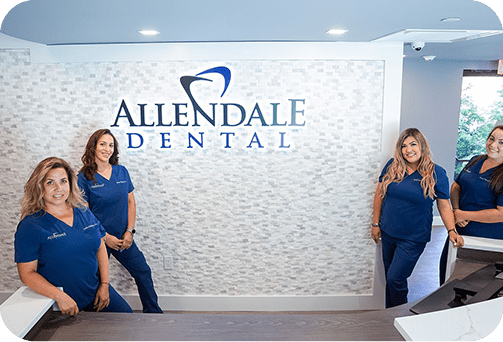HELP CENTER
LIST OF DENTAL PROBLEMS
Abscessed Tooth
An abscessed tooth is a pocket of pus, usually caused by some kind of infection and the spread of bacteria from the root of the tooth to the tissue just below or near the tooth. It can be extremely painful and should be treated ASAP.
Bad Breath (halitosis)
Bad breath is caused by a variety of factors. In most cases, it is caused by food remaining in the mouth – on the teeth, tongue, gums, and other structures, collecting bacteria. Dead and dying bacterial cells release a sulfur compound that gives your breath an unpleasant odor.
Bulimia Nervosa
People with eating disorders can suffer from oral health problems as well. This is because many of the behaviors associated with anorexia nervosa and bulimia nervosa—such as binge eating, self-induced vomiting, and use of diuretics or laxatives—cause changes in the mouth.
Brushing after episodic vomiting is actually more harmful than one would think. The best practice is to rinse thoroughly with a neutral solution such as baking soda and water.
Canker/Cold Sores
People sometimes confuse canker sores and cold sores, but they are completely unrelated. Both can be painful, but knowing the differences can help you keep them in check.
A canker sore is typically one that occurs on the delicate tissues inside your mouth. It is usually light-colored at its base and can have a red exterior border.
A cold sore or fever blister, on the other hand, usually occurs on the outside of the mouth, usually on or near the nose or lips. A cold sore is contagious because it is caused by the herpes simplex virus, and it is usually painful and filled with fluid.
Cavities and Tooth Decay
Tooth decay is caused by a variety of things; in medical terms, cavities are called caries, which are caused by long-term destructive forces acting on tooth structures such as enamel and the tooth’s inner dentin material.
These destructive forces include frequent exposure to foods rich in sugar and carbohydrates. Soda, candy, ice cream—even milk—are common culprits. Left inside your mouth from non-brushing and flossing, these materials break down quickly, allowing bacteria to do their dirty work in the form of a harmful, colorless sticky substance called plaque.
Preventing Cavities: The best defense against cavities is good oral hygiene, including brushing with a fluoride toothpaste, flossing and rinsing. Your body’s own saliva is also an excellent cavity fighter, because it contains special chemicals that rinse away many harmful materials. Chewing a good sugarless gum will stimulate saliva production between brushing.
Toothaches
Simple toothaches can often be relieved by rinsing the mouth to clear it of debris and other matter. Sometimes, a toothache can be caused or aggravated by a piece of debris lodged between the tooth and another tooth. Avoid placing an aspirin between your tooth and gum to relieve pain, because the dissolving aspirin can actually harm your gum tissue.
A broken, fractured or displaced tooth is usually not a cause for alarm, as long as decisive, quick action is taken.
Diabetes
People living with diabetes are vulnerable to a host of systemic problems in their entire body. Unfortunately, the mouth and teeth are not immune from such problems, and many diabetics with oral problems go undiagnosed until conditions become advanced.
Infections and other problems such as receding gums and gum disease, or periodontal disease, are common afflictions among diabetics for many reasons; for instance, diabetics often are plagued by diminished saliva production, which can hamper the proper cleansing of cavity-causing debris and bacteria from the mouth. In addition, blood sugar levels that are out of balance could lead to problems that promote cavities and gum disease.
As with any condition, good oral hygiene, including regular brushing, flossing and rinsing, as well as the proper diabetic diet, will go a long way in preventing needless problems.
Dry Mouth
Saliva is one of your body’s natural defenses against plaque because it acts to rinse your mouth of cavity-causing bacteria and other harmful materials. Dry mouth (also called Xerostomia) is a fairly common condition that is caused by diminished saliva production. People with medical conditions, such as an eating disorder or diabetes, are often plagued by dry mouth. Eating foods such as garlic, tobacco use, and some kinds of medications, including treatments such as cancer therapy can diminish the body’s production of saliva, leading to dry mouth. Other causes are related to aging (including rheumatoid arthritis), and compromised immune systems.
Fluorosis
Fluorosis is a condition in which your body has been exposed to too much fluoride. In normal doses (typically found in a safe drinking water system and an ADA-approved toothpaste), fluoride is a healthy compound that promotes strong teeth, which has the ability to fight cavities and other problems.
But sometimes, fluorosis occurs when fluoride-containing toothpastes or rinses are swallowed, instead of expelled.
Fluorosis causes a number of aesthetic problems, including abnormally darkened or stained teeth. While such problems are generally harmless to your health, they can create concerns with your appearance.
Gum Disease (Gingivitis)
Gingivitis is the medical term for early gum disease, or periodontal disease. In general, gum disease can be caused by long-term exposure to plaque, the sticky but colorless film on teeth that forms after eating or sleeping.
Lacerations and Cuts
Any kind of cut to your face and the delicate soft tissues inside your mouth should be addressed immediately in order to prevent further tissue damage and infection.
If a traumatic injury involves a broken facial bone such as the jaw, nose, chin or cheek, maxillofacial surgery may be required.
With jaw surgery, rubber bands, tiny wires, metal braces, screws or plates are often used to keep a fractured jaw in place following surgery. This allows the bone to heal and stay in proper alignment. Dental splints or dentures may also be required to supplement the healing process following jaw surgery.
Lacerations and Cuts
Any kind of cut to your face and the delicate soft tissues inside your mouth should be addressed immediately in order to prevent further tissue damage and infection.
Oral Cancer
Oral cancer is one of the most common cancers today and has one of the lowest survival rates, with thousands of new cases being reported each year. Fewer than half of all people diagnosed with oral cancer are ever cured.
In general, early signs of oral cancer usually occur in the form of lumps, patchy areas and lesions, or breaks, in the tissues of the mouth. In many cases, these abnormalities are not painful in the early stages, making even self-diagnosis difficult.
Plaque
Plaque is a film of bacteria that forms on your teeth and gums after eating foods that produce acids. These foods may include carbohydrates (starches and sugars), such as candy and cookies, and starchy foods such as bread, crackers, and cereal.
Tooth decay, commonly known as cavities, occurs when plaque remains on your teeth for an extended period of time, allowing the bacteria to ‘eat away’ at the surfaces of your teeth and gums. Ironically, the areas surrounding restored portions of teeth (where fillings, or amalgams have been placed) are particularly vulnerable to decay and are a breeding ground for bacteria.
Teeth Grinding
Teeth grinding, also called bruxism, is often viewed as a harmless, though annoying, habit. Some people develop bruxism from an inability to deal with stress or anxiety.
However, teeth grinding can literally transform your bite relationship and worse, severely damage your teeth and jaws over long periods of time.
Teeth grinding can cause abrasion to the chewing surfaces of your teeth. This abnormal wear and tear will prematurely age and loosen your teeth, and open them to problems such as hypersensitivity (from the small cracks that form, exposing your dentin). Bruxism can also lead to chronic jaw and facial pain, as well as headaches.
Jaw Disorders
People who grind their teeth can sometimes develop a serious problem with their jaw, which left untreated, can adversely affect the teeth, gums and bone structures of the mouth. One of the most common jaw disorders is related to a problem with the temporomandibular joint, the joint that connects your lower jaw to your skull, and allows your upper and lower jaw to open and close and facilitates chewing and speaking.
People with temporomandibular joint disorders (TMD) often have a clicking or popping sound when opening and closing their mouths. Such disorders are often accompanied by frequent headaches, neck aches, and in some cases, tooth sensitivity.
Some treatments for TMD include muscle relaxants, aspirin, biofeedback, or wearing a small plastic appliance in the mouth during sleep.
Minor cases of TMD involve discomfort or pain in the jaw muscles. More serious conditions involve improperly aligned joints or dislocated jaws. The most extreme form of TMD involves an arthritic condition of the jaw joint.
OUR OFFICE HOURS
-
MONDAY
8 AM – 7 PMTUESDAY
8 AM – 6 PM -
WEDNESDAY
7 AM – 7 PMTHURSDAY
9 AM – 7 PM -
FRIDAY
8 AM – 5 PMSAT/SUN
CLOSED

